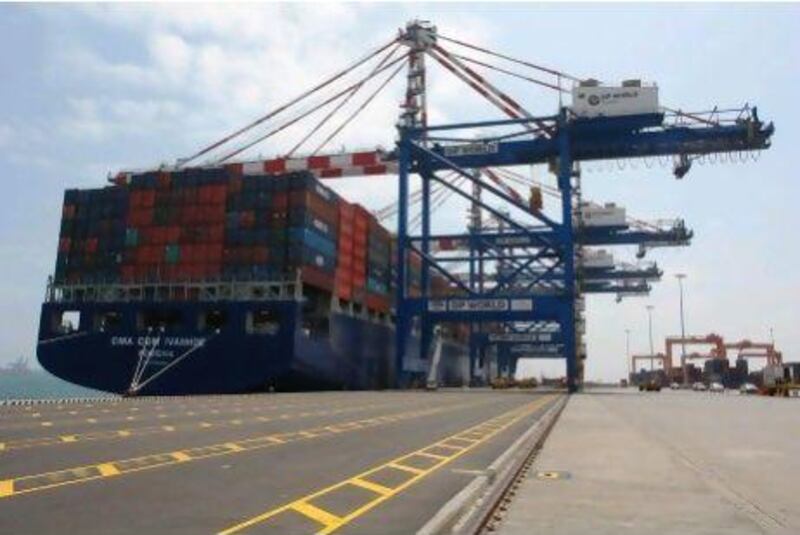The ports operator DP World and National Bank of Abu Dhabi ranked among the top companies in Standard & Poor's new pan-Arab index that aims to boost transparency and corporate governance across the markets.
The S&P-Hawkamah Pan Arab ESG Index ranks the Middle East's top 50 companies using a set of environmental, social and corporate governance standards. It is a joint venture between the ratings agency and Hawkamah, an institute for enhancing corporate governance in the region.
"We're raising the bar as far as [financial and governance] reporting is concerned and putting these issues on the corporate agenda," said Dr Nasser Saidi, the executive director of Hawkamah.
"This is what institutional investors like pension funds are looking for now ," Dr Saidi said. "Neglect ESG at your peril."
The UAE's equity markets have lacked long-term institutional investment that provides stability and strong volumes for markets. The wider Mena region has ranked poorly on transparency and disclosure.
Enhancing those areas, which the index encourages, would only bode well for a company's performance, industry commentators said at a launch event for the index at the Dubai International Financial Centre yesterday.
John Knight, the chief operating officer at Mumtalakat, an investment firm based in Bahrain, said the introduction of the new benchmark showed the Mena region was taking corporate governance seriously.
"Half of our investments are slated in the Mena region. This will help liquidity and we like liquidity," he said.
The potential to be included on the index is "something to aspire to" when preparing disclosure documents and annual reports, Mr Knight said.
The UAE's second mobile phone operator, du, also features in the top 10, alongside Egypt's mobile operator Mobinil, the Qatar operator Qtel and Oman Telecommunications Company.
Telecoms and financial institutions have traditionally been among the most well-regulated sectors with the least environmental impact, but Dr Saidi expects different sectors to come on board as the prominence of the ESG increases.
"Companies are paying closer attention and this will make them compete," he said.
Of the nine countries represented, Saudi Arabia had the highest weighting on the index published yesterday with 30.3 per cent and the UAE ranked second with 14.7 per cent.
But some of the biggest companies in the region, such as the chemical maker Saudi Basic Industries Corporation and Dubai's Emaar Properties, did not rank in the top 10 on the index.
"Thinking about [sustainability] is a sign of a more mature market," said Eva Ramos, a senior sustainability specialist at the Environment Agency - Abu Dhabi, which counts Aldar Properties, Sorouh Real Estate and Etihad Airways among its members.
She said there was still some way to go before the environment was at the forefront of corporate strategy but added it was a step in the right direction.
"It's normally NGOs [non-governmental organisations] that talk about sustainability and transparency, but this time the message is coming from the financial community," Ms Ramos said.
The index, which represents a combined market capitalisation of US$176 billion (Dh646.47bn), weights a company on the basis of disclosing information about how "green" and transparent it is. Ms Ramos said the level and information disclosed was vital.
"It's not about the disclosure as such but the things you should disclose should be positive, otherwise you're still a bad company," she said.





